Summary: I take a break from writing. Numbers are drawn to see who gets what. We transition people living in the camp to larger tents and help them better prepare for winter. Mary, an amputee, shows us how brutal the cold can be. Our outreach is out of space.
Read Time: Eight minutes
I’ve been quiet for a while. Not because I ran out of stories, but because I started worrying about what people might think when I told them. Somewhere along the way, I let that noise drown out the reason I ever started writing in the first place.
The truth is, I regret a lot of what I’ve written. Not because it wasn’t true, but because it wasn’t always helpful. And if I’m being honest, regret seems to be a recurring theme in my life. I can already guess that someday I’ll look back on these words and wish I’d said them differently, too. It would be easy to delete or edit some of those things I’ve written before, but it’s better for me to own it and move on.
But silence isn’t the answer. I can’t stop speaking just because I might get it wrong. What we do — and what I write — has never been about looking good. It’s about showing up. It’s about telling the truth, even when the truth costs something.
And it has cost me. I’ve lost friends because of what I’ve written — and because of the pictures I’ve taken, the people I’ve talked about, and the things I’ve chosen to show. A couple of folks I’ve known for years just quietly drifted away. It’s hurtful. I don’t say that for sympathy; it’s just part of the reality.
When you decide to tell the truth about broken places, not everyone wants to hear it. But I’d rather be misunderstood for caring too much than stay quiet and safe while people suffer unseen.
So I’m writing again — not to be understood, but to be your eyes into a misunderstood world.
I’ve seen too much to sit on my hands.
We try to be careful with who from our group goes into camp, having worked hard to gain their trust. I usually go into camp on my own, but I have recently brought another from our group along. I gave him the same induction I got a few years ago — full throttle. I introduced him as my friend, and a meaningful dialogue started to flow between him and the people living there. The purpose of our visit was to inform everyone we could find that provisioning was available right outside the entrance. We walked as far into camp as possible, to the more destitute areas, where people are typically just under a tarp.
As we arrived back where we were parked, it wasn’t much of a surprise to see this grown man break down in tears. There’s nothing I could have said that would’ve prepared him. It breaks you in a humbling way.
We were doing a supplementary outreach before our regularly scheduled one on the last Saturday of every month. We had a trailer full of tents, sleeping bags, and cots, but we knew before we arrived that there wouldn’t be enough for everyone. The forecast for later that evening was not going to be friendly for those living outside, and you could feel the desperation among the assembled crowd. We decided to use a lottery to determine who got what.
One woman came to me and pleaded for a cot for her pregnant daughter. Although I had recalled seeing a girl in camp earlier that day who could have been pregnant, I hadn’t gotten a good look at her. Not everybody wants to be seen. For her, the numbers might not be in her favor. But the random selection of tickets had already begun. Another man desperately pleaded for a tent, as he was a new arrival and had nothing. One woman drew a winning ticket and later confessed that she lived in a home and had no need. She asked to give her winning ticket for a cot to a bystander, who I knew for a fact did not have one.
It’s what outreach is. Sometimes it’s a mess.
There’s the other side of it, though. Later that day, I saw the expression on the man’s face who needed the tent so urgently, grasping it with both hands. His night wasn’t going to be okay, but it would be better. Another man handed me his winning ticket and accepted his sleeping cot — all because of the mercy of someone who decided to be honest. A woman who has been a long-term resident and has some minor mobility issues finally received the cot she had been asking about for months, carried on the back of a neighbor. And yes, the one who claimed to have an expecting daughter also got one.
It’s the love of Christ showing up in what the world says is the most unlikely place. But it’s like Christ to be here.
I was walking through camp one afternoon when I spoke with a man struggling with a tarp covering his belongings. The day before, we had received about five inches of rain within an hour. Having just a corner of a tarp unsecured can have the opposite effect with running water — it can channel it all right where you don’t want it. Everything was completely saturated.
I could relate. That same rain found its way through a tarp attached to the roof of our house. We were having our roof replaced after the hailstorm a few months ago, and a tarp that wasn’t properly attached funneled water into an interior wall.
It got me thinking about abrupt flooding and the belongings it can wash away. What would it be like to be stuck inside a two-man tent during bad weather, such as when it rains for days on end? From the time most of these people were forcibly displaced from their last camp, we’ve worked hard to get them into any tent. Now that many of the long-term residents are established, it’s time to get them into larger, more sustainable tents — big enough to keep their belongings dry and to stand up inside if they’re going to be stuck in it for a while.
So, I petitioned the public. And they responded. And something unexpected happened. Most of those who received bigger homes allowed others without to move in with them. That speaks for itself, I believe. But if that continues, it will make sense to heat an eight-man tent with three or four inside, rather than four individual tents with one person each. Thankfully, we had over hundred-gallon containers of hand sanitizer donated, which are heated in a metal can to keep the occupants warm. So I feel like we’re better prepared for the start of winter than in the past.
It’s a big deal. During our family meal, I sat across from Mary. Somehow, I dismissed her telling me about how her toes were amputated after being frostbitten during that week when the temperatures dipped below zero. What I mean is that I heard what she said, but it didn’t hit home until we were doing our outreach at the Cadillac Motel a week later. We had a tote of shoes people were picking through, and evidently, she had found a pair she liked because she sat in front of me on a concrete walk and was trying them on. She didn’t have any toes.
My wife called to my attention a conversation I wrote about in January 2024 with a man who had just endured below-freezing weather: “he explained that they all slept in a tent with some fuel heat that comes in a canister. I still have no clue as to what he was referring to.” Looking back, I realize how much understanding we’ve gained since then. Back then, we didn’t have relationships with the people who lived in Tent City; we just visited there the last Saturday of every month and dumped off a bunch of supplies. Metaphorically, we checked it off our list and went on with life, feeling better about ourselves. We’ve come a long way in a short period of time.
And I’m not saying that to boast about our accomplishments. I’m trying to encourage others who have been on the edge about reaching out to someone in their own world. You can do it. You don’t have to put yourself in questionable circumstances to speak to someone in public. When you start looking, you’ll see that they were probably there the whole time, but unnoticed.
Let’s use people living in their vehicles as an example. For years, I drove by the same vehicle in the same parking lot and never gave it a thought. It would be gone by the afternoon and back the next morning, maybe parked in a different spot. The windows were covered, and some belongings were strapped to the roof. You’d think something that obvious would’ve told me someone was living inside that vehicle. But it didn’t, because I wasn’t thinking like that. Now I see them more often.
Many of you are inquiring about Stella. I met her maybe a year ago at a previous camp, where she lived with her mom, who has since moved back to their hometown. We’ve been working with her to showcase some of the jewelry she creates. We were supposed to do that during a family meal we hosted for those experiencing homelessness, but things didn’t turn out quite as planned. Initially, she thought she had misplaced her creations, which distressed her. Later, when she found them, among the hustle to serve and clean up from the meal of thirty, we didn’t meet up. However, that is certainly our intention — to follow through on the promise we made to her.
On our next visit, the jewelry remained elusive.
Our outreach on the last Saturday of every month remains the same. Some of the events seem like the best, and others are a lot of hard work and not as enjoyable. It has a lot to do with volunteers. It goes from one extreme to the other. For example, one month we had a group that set up a couple of grills and served hamburgers and hot dogs, with more help than we knew what to do with. Another month, we struggled to serve the roughly hundred-plus folks coming through the line when we’re set up at the Cadillac Motel. But we have had some absolutely amazing events.
Where we need help the most is in the background. I have people with heartfelt intentions who want to give us clothes. They’ll argue that people less fortunate than themselves need them, and that’s absolutely correct. So I invite them to volunteer their time on a full-time basis to sort it, package it, load it, and distribute it — and things get quiet.
I say that not to be mean to people wanting to donate clothing, but to give you an idea of what a day in the backroom is like. When we petition our community for nonperishable food, they respond in large numbers. Someone has to receive that, which sometimes includes us graciously carrying it in from the vehicle. We can do that — it’s the easy part. The cans need to be sorted, weighed, packaged, labeled, and stored in an organized way. The same with coats, blankets, hygiene, and a long list of other essentials. We’ve all chipped in and managed it. But it’s a struggle. It’s clearly grown to the point that we need an individual to manage it.
We’ve reached a point where faith and logistics meet head-on. Supplies, space, transportation — all of it’s being stretched thin. But even so, the work doesn’t stop. It just reminds me that this mission was never supposed to depend on what we have — only on who’s willing to see and respond.
Yes, I am petitioning you for some big things. You don’t have to do anything with us to make a difference. Just don’t look past the people already in your view. The ones at the gas station, the ones sleeping in cars, the ones holding a sign that says less about poverty and more about pain. Start there. Start anywhere. Just don’t stay silent.
Thanks, Dad. For encouraging me to write again.
All of the real names used here were used with permission. Otherwise, the names have been changed. To protect the identity of those photographed, they have been blurred intentionally unless consent was given before publishing.
The Safer Kentucky Act, which went into effect on July 15, 2024, makes sleeping or camping in public areas illegal, including on sidewalks, roadsides, under bridges, or in parks, parking lots, garages, or doorways. The law creates a new offense called “unlawful camping” that can result in arrest and fines. Assisting those individuals is considered to be aiding and abetting, which is a legal doctrine that refers to the act of helping or encouraging someone to commit a crime. The person who aids and abets is generally held to the same degree of criminal liability as the person who commits the crime. We ask that you please not attempt to locate or visit Tent City.
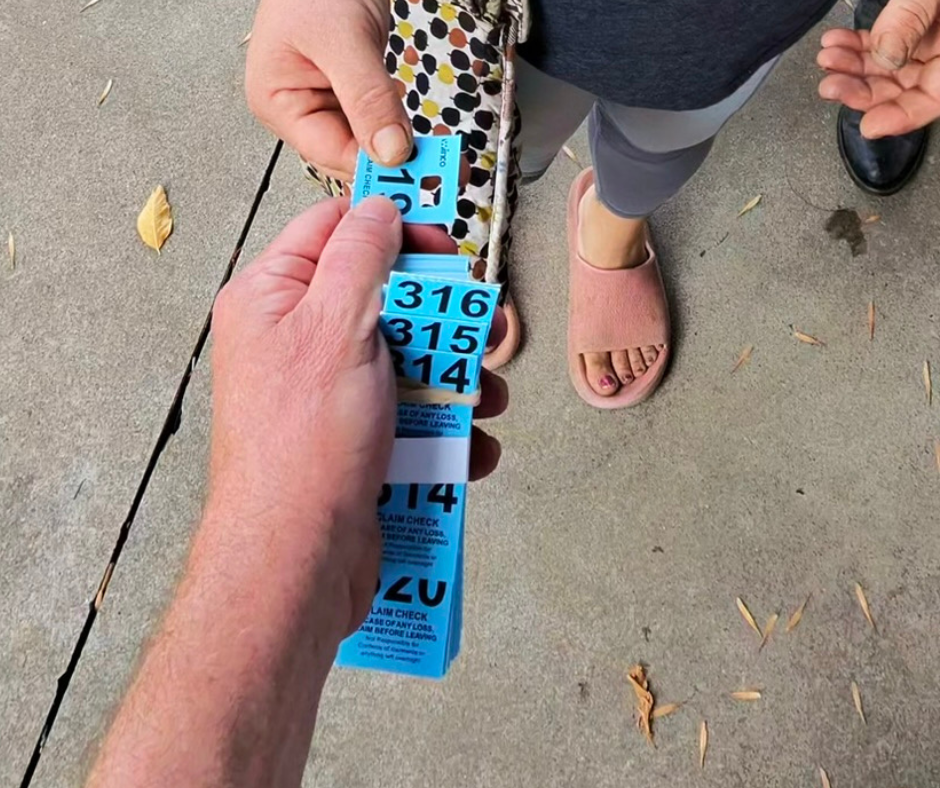
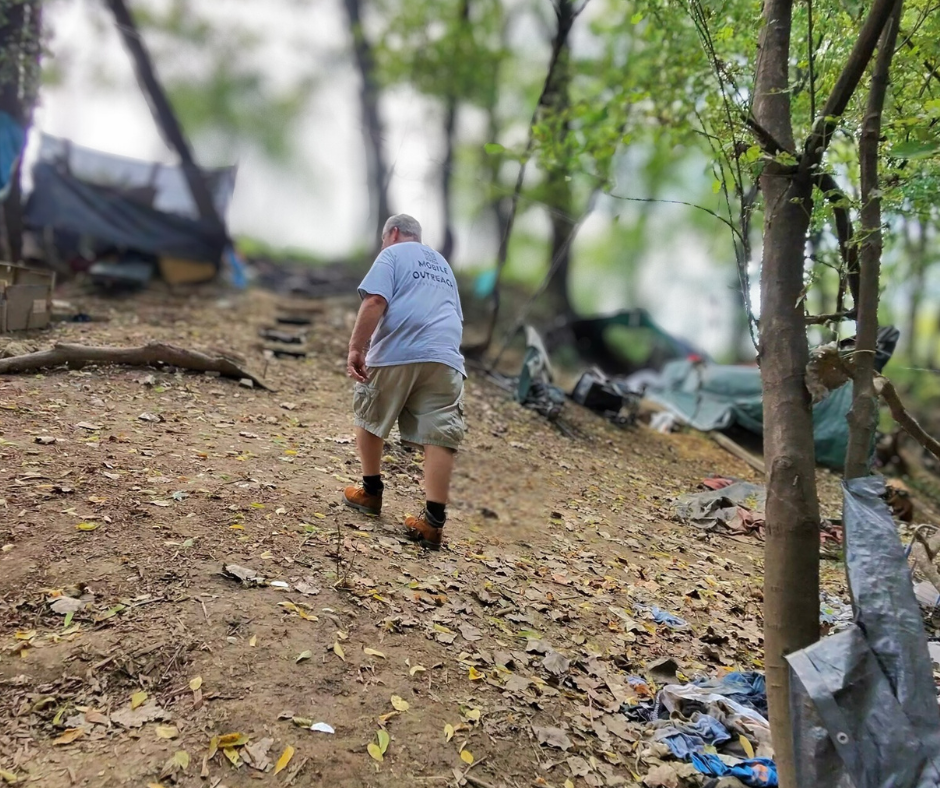
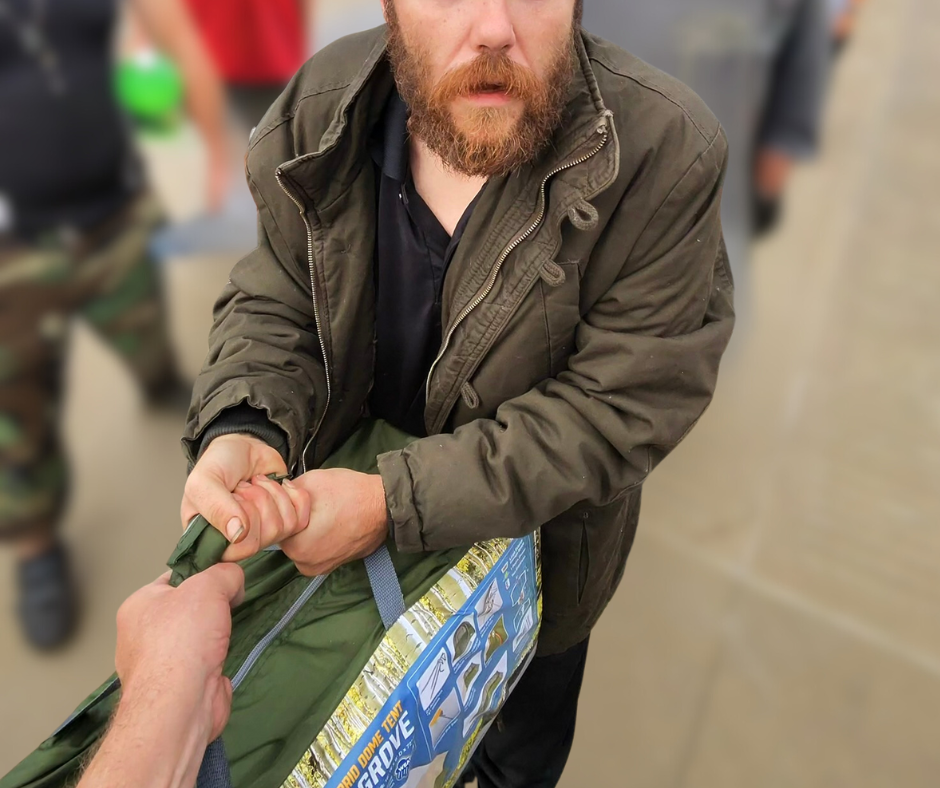
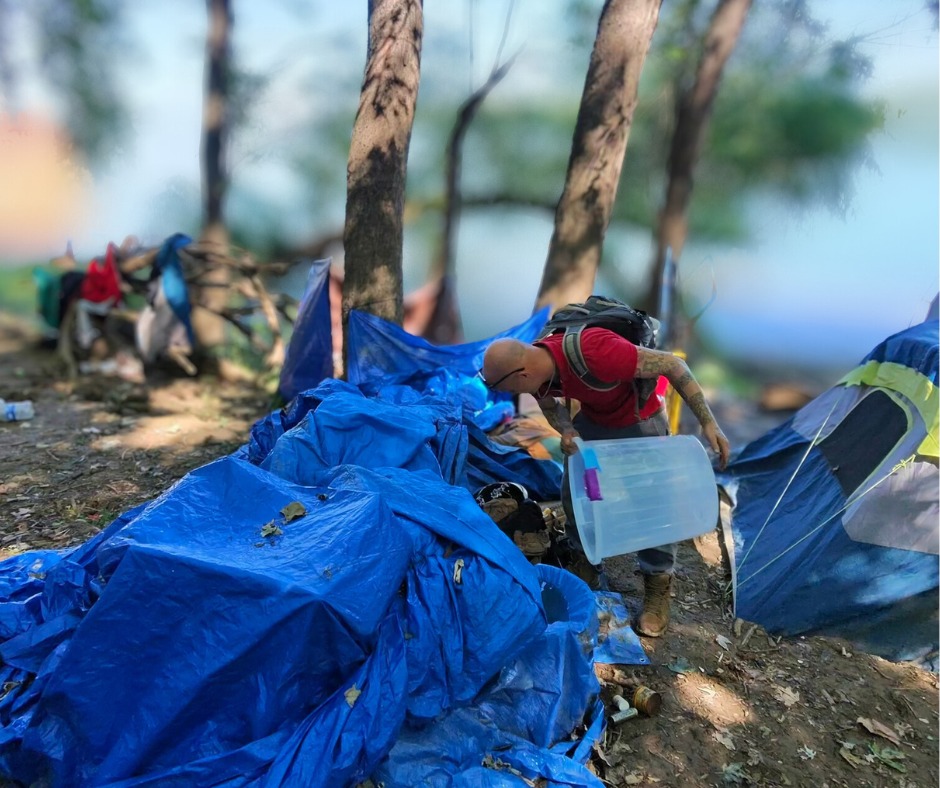
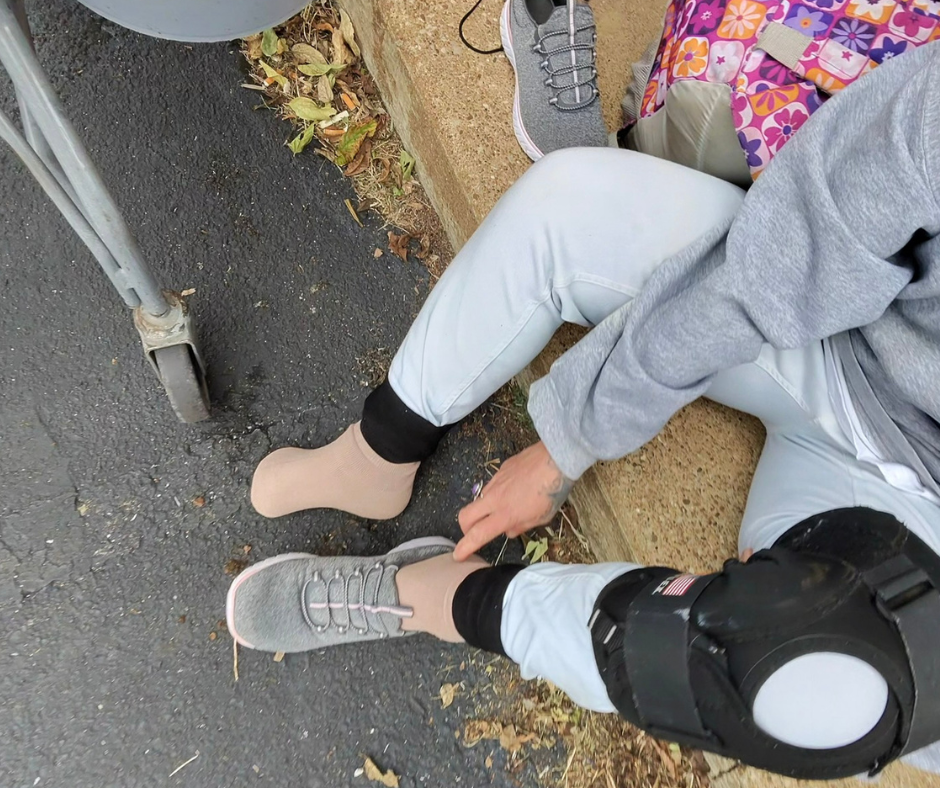
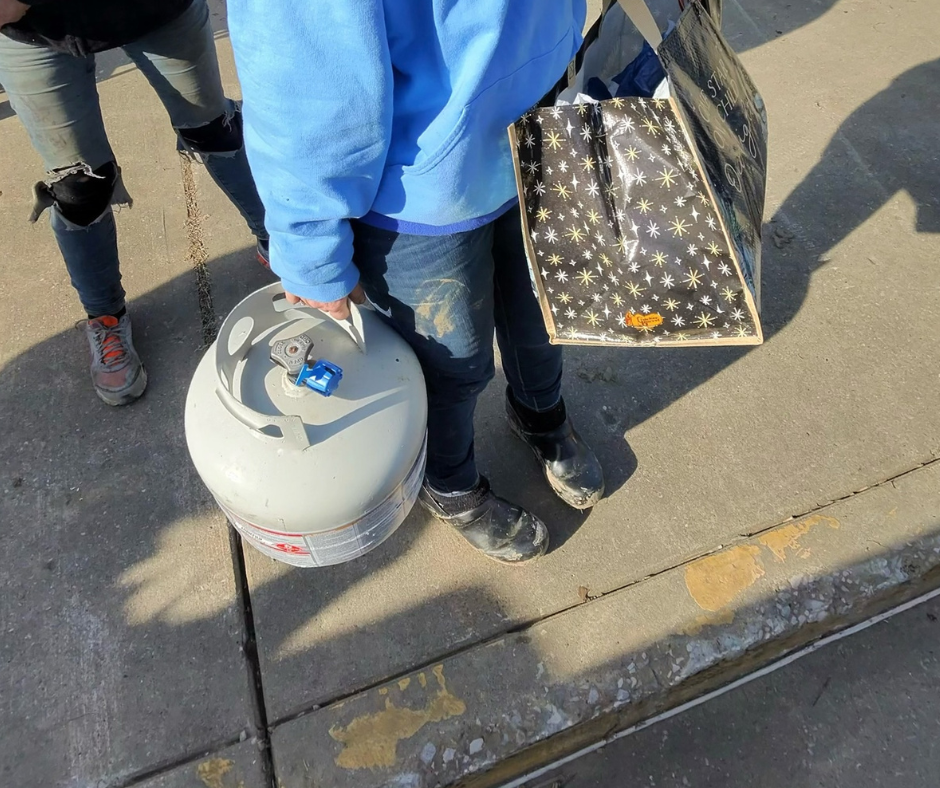
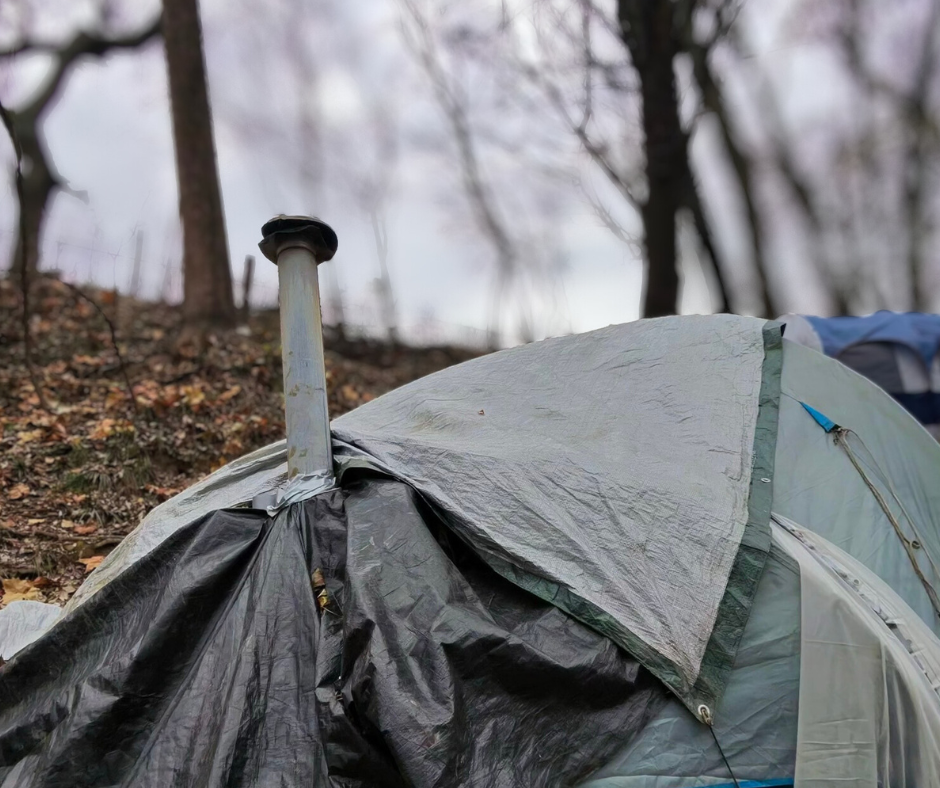
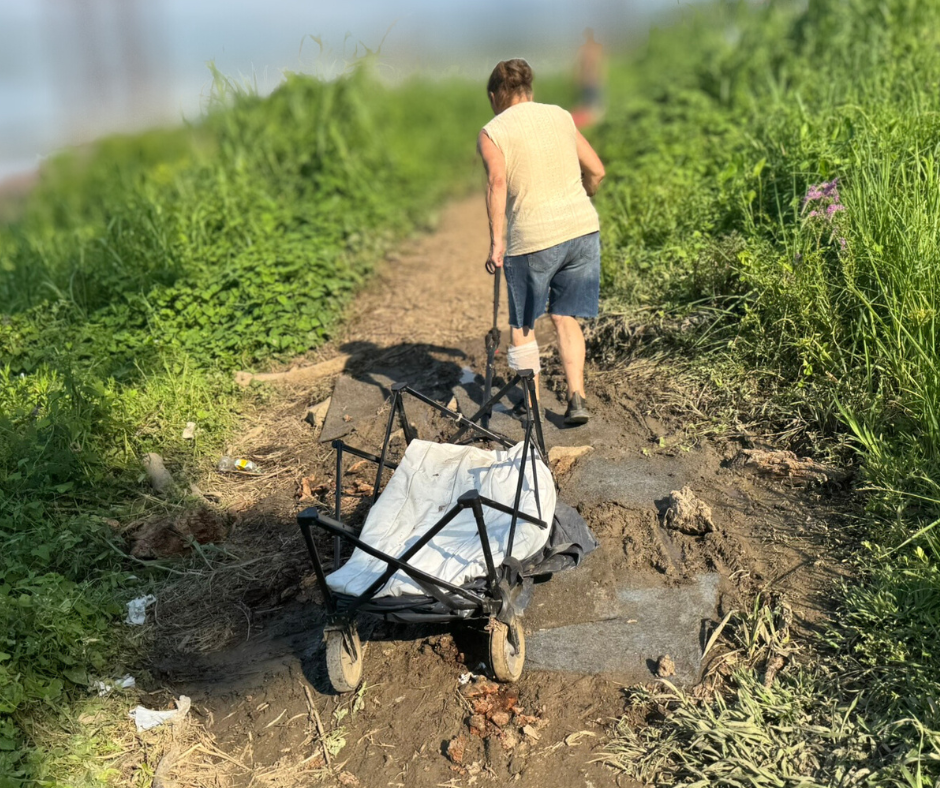
Thank you for all that you and your team members do to help the homeless people in Owensboro!
Here is a suggestion for the general public to ponder on – If when eating out, go ahead and order that xtra large pizza (instead of only the small or medium pizza that you really only need) and instead of leaving the extra untouched slices on your table or taking it home as “leftovers ”, simply drive around 2nd street to Places like Smothers Park, or English Park, and spot someone who is undoubtedly homeless pushing that shopping cart with their belongings in it, roll down your vehicle window and offer them your box of extra slices of fresh pizza! The pizza in that carryout box that you consider as “leftovers” could possibly be the much needed meal that this person needs to ward off the hunger pains for the rest of the day or night. It will be greatly appreciated by that person for sure! Plus it’s so much better for your heart and spirit than choosing to “look the other way”.
I would really like to see some of Stella’s jewelery. I used to make jewelry. Unfortunately my hands don’t work so good anymore.